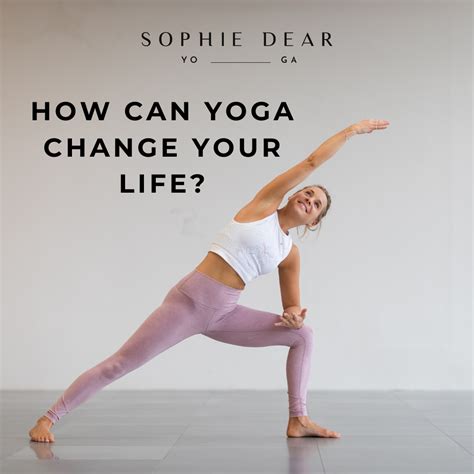How Practicing Yoga Can Transform Your Self-Image and Overall Wellbeing
Yoga is often celebrated for its physical benefits, such as increased flexibility, strength, and balance. However, its impact goes far beyond the physical realm. At its core, yoga offers a powerful way to transform your self-image. By harmonizing the mind, body, and spirit, yoga can foster self-acceptance, improve body awareness, and promote a more positive, balanced perspective on oneself. But how exactly does this transformation occur? In this article, we’ll explore the key concepts, historical context, current state of research, and practical applications of yoga in reshaping self-image.
Key Concepts in Yoga and Self-Image
Before delving into how yoga transforms self-image, it’s essential to define the key concepts involved.
- Self-image: Refers to the mental picture we have of ourselves, including our thoughts, beliefs, and perceptions of our physical body and personal identity.
- Mind-body connection: A core principle in yoga, emphasizing the deep interrelationship between mental and physical states.
- Mindfulness: A practice of present-moment awareness that plays a crucial role in yoga, helping practitioners observe their thoughts and feelings without judgment.
- Self-acceptance: Yoga encourages a non-judgmental approach to one’s body and mind, fostering a compassionate understanding of oneself.
Historical Context of Yoga’s Impact on Self-Perception
Yoga’s origins date back over 5,000 years in ancient India, where it was initially developed as a spiritual and philosophical discipline. Unlike today’s focus on the physical benefits, early yoga was more concerned with self-realization, transcendence, and connecting with the higher self.
In texts such as the Yoga Sutras of Patanjali, the practice was framed as a path toward mental clarity and liberation from the ego. The aim was to dissolve the false sense of self and achieve samadhi—a state of unity with all existence. This ancient foundation laid the groundwork for modern interpretations of yoga as a tool for personal growth and self-awareness, especially when it comes to improving self-image.
Current State of Research: How Yoga Impacts Self-Image
In recent decades, scientific studies have begun to explore the psychological benefits of yoga, particularly how it influences self-perception. Research shows that practicing yoga can lead to:
- Improved body satisfaction: Multiple studies have demonstrated that regular yoga practitioners report higher levels of body satisfaction compared to non-practitioners.
- Reduced self-criticism: Yoga’s emphasis on mindfulness can reduce negative self-talk, promoting a more compassionate inner dialogue.
- Enhanced self-awareness: By encouraging deep body awareness, yoga helps practitioners become more in tune with their physical and emotional states, leading to greater self-understanding.
For example, a 2021 study published in Psychology Today found that women who practiced yoga for six months reported significant improvements in body image and self-esteem, largely due to the practice’s focus on mindfulness and body awareness.
Practical Applications of Yoga for Improving Self-Image
Yoga’s transformative potential lies in its combination of physical postures (asanas), breath control (pranayama), and meditation. Here’s how each element contributes to a better self-image:
- Asanas (physical postures): Engaging in physical poses promotes body awareness and fosters a sense of physical empowerment. Poses like Warrior II and Tree Pose can help individuals feel strong and grounded.
- Pranayama (breath control): Focusing on breath helps calm the mind and reduce anxiety, creating space for more positive self-perceptions to emerge.
- Meditation: Meditation encourages mindfulness, helping practitioners become aware of negative self-talk and replace it with self-compassion.
By integrating these elements into daily practice, individuals can gradually rewire their thinking patterns and foster a healthier, more balanced self-image.
Case Studies: Real-Life Transformations Through Yoga
To illustrate yoga’s impact on self-image, consider the following case studies:
| Case Study | Key Takeaways |
|---|---|
| Mary’s Journey Mary, a 35-year-old office worker, struggled with body dysmorphia and chronic self-criticism. After six months of practicing yoga, she reported feeling more comfortable in her own skin and noticed a decrease in her body-related anxiety. |
Mary attributed her transformation to yoga’s focus on mindfulness and non-judgment, which allowed her to approach her body with more compassion. |
| John’s Transformation John, a 40-year-old athlete, used yoga to recover from a sports injury. While initially skeptical, he found that yoga not only helped his physical recovery but also gave him a new sense of respect for his body’s capabilities, enhancing his overall self-image. |
John’s newfound body awareness helped him embrace his limitations and appreciate the strength his body still possessed, fostering a more positive self-image. |
Stakeholder Analysis: Who Benefits from Yoga’s Impact on Self-Image?
The transformation of self-image through yoga has broad implications, affecting different groups in unique ways:
- Individuals: The most immediate beneficiaries are those practicing yoga, who experience improved self-esteem, body awareness, and emotional balance.
- Healthcare professionals: Mental health practitioners, physical therapists, and holistic healers can incorporate yoga into treatment plans to help patients struggling with self-image issues.
- Yoga instructors: Teachers who emphasize the mind-body connection and mindfulness can better support their students’ psychological well-being.
Implementation Guidelines: Incorporating Yoga into Daily Life
For those seeking to improve their self-image through yoga, consider the following guidelines:
- Start small: Begin with short, simple sessions that focus on mindfulness and body awareness.
- Consistency is key: Practice regularly, even if only for 10-15 minutes a day, to experience long-term benefits.
- Focus on progress, not perfection: Yoga is about the journey, not the destination. Be gentle with yourself as you progress.
Ethical Considerations in Yoga Practice
While yoga can offer significant benefits, there are ethical considerations to keep in mind:
- Cultural appropriation: Be aware of yoga’s cultural roots and practice with respect for its spiritual traditions.
- Commercialization: In modern society, yoga is often marketed as a fitness trend, which can overshadow its deeper psychological and spiritual aspects. Practitioners should approach yoga with mindfulness and respect for its holistic purpose.
Limitations and Future Research
While the research on yoga’s impact on self-image is promising, there are several limitations to consider:
- Limited long-term studies: While short-term improvements in self-image are well-documented, more long-term studies are needed to determine if these changes are sustained over years.
- Varied individual responses: Not all individuals experience the same benefits from yoga, and factors such as personal background, mental health status, and the type of yoga practiced can influence outcomes.
Future research should explore the long-term impact of yoga on self-image and investigate how different styles of yoga (e.g., Hatha, Vinyasa, Kundalini) affect self-perception.
Expert Commentary
Experts in psychology and yoga alike agree that yoga offers a multifaceted approach to improving self-image. Dr. Sarah Williams, a clinical psychologist, notes, “Yoga combines mindfulness, physical movement, and breath control, which together can profoundly impact how we view ourselves. It’s not just about the body, but about integrating the mind and spirit.”
Yoga instructors emphasize that the practice is less about physical perfection and more about connecting with one’s inner self. “What we see in the mirror is only part of the story. Yoga helps us see ourselves from within, with compassion and understanding,” says longtime yoga teacher, Emily Roberts.








